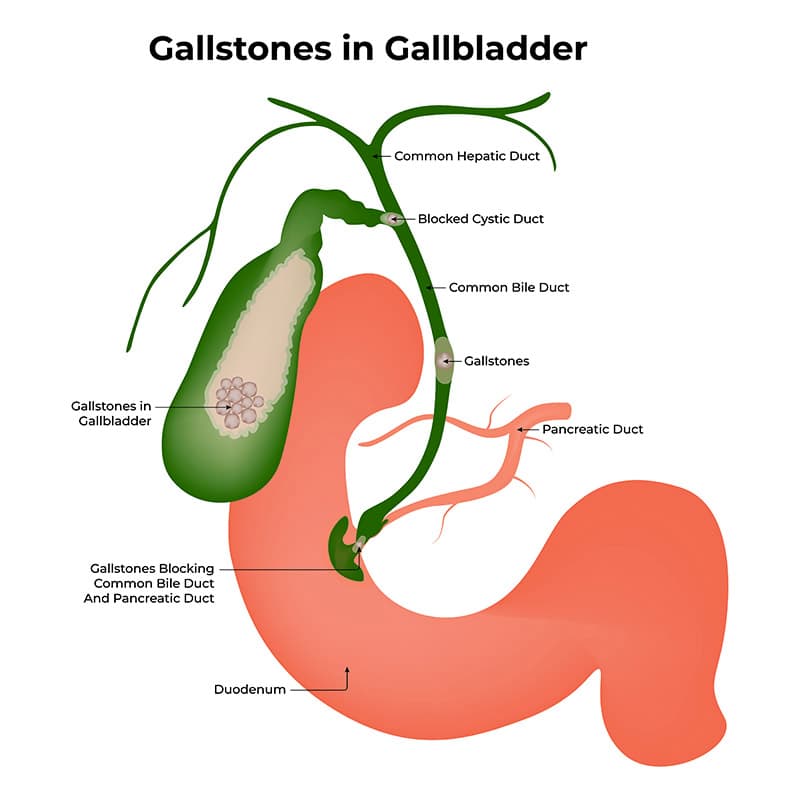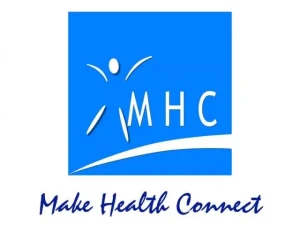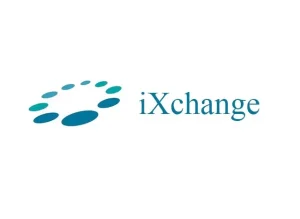Gallstones & Bile Duct Obstructions
Gallstones are hardened deposits that form in the gallbladder. While some may not cause symptoms, others can block the bile ducts and lead to complications.
Richmond Gastroenterology Centre
Dr. John Hsiang
MBChB (NZ), FRACP (Australasia), MD (Doctorate), FRCP (Edinburgh), FAMS (Gastro)
Dr. John Hsiang is a distinguished gastroenterologist in Singapore with extensive training and experience in digestive health. He obtained his Fellowship of the Royal Australasian College of Physicians in Gastroenterology in 2012 and holds a PhD in viral hepatitis and fatty liver disease research.
He provides care for a broad range of digestive and liver concerns, combining thorough evaluation with tailored management to support patients’ long-term well-being.
Dr Hsiang is skilled in performing gastroscopy (upper endoscopy) and colonoscopy to investigate symptoms, detect stomach and colon cancers at an early stage, and provide timely treatment options.
With a commitment to individualised care, he applies an evidence-based approach that prioritises accuracy, effectiveness and patient comfort at every stage of diagnosis and treatment.
Languages Spoken:
English, Mandarin and Hokkien
Fellowship Trained Specialist
20+ Years of Clinical Experience

What are Gallstones?
Gallstones are hardened deposits that form in the gallbladder. While some may not cause symptoms, others can block the bile ducts and lead to complications such as biliary colic, gallbladder inflammation (cholecystitis), bile duct obstruction (choledocholithiasis) or
pancreatitis.
These conditions may result in severe abdominal pain, infection and digestive issues. Timely medical evaluation and treatment are important to manage symptoms effectively and prevent more serious complications.
How are Gallstones Formed?
Gallstones form when there is an imbalance in the composition of bile, a digestive fluid produced by the liver and stored in the gallbladder. This can happen when bile contains too much cholesterol, excess bilirubin, or not enough bile salts, causing crystals to form and gradually grow into stones.
Slower or less effective gallbladder movement, which prevents bile from being emptied properly, can also contribute to the formation of gallstones over time.
How Do I Know If I Have Gallstones?
Gallstones may not always cause symptoms, but when they do, common signs include sudden pain in the upper right or centre of the abdomen, nausea, vomiting and bloating, especially after fatty meals.
Risk Factors
- Age – the risk of gallstones increases with age.
- Female gender – higher oestrogen levels can increase cholesterol in bile.
- Pregnancy – hormonal changes may slow gallbladder emptying and alter bile composition.
- Obesity or rapid weight loss – both can disrupt the balance of substances in bile.
- Certain medical conditions, including diabetes or liver diseases, can affect bile flow.
- Family history of gallstones.
Types of Gallbladder Diseases
- Gallstones (cholelithiasis) – hardened deposits that form in the gallbladder.
- Cholecystitis – inflammation of the gallbladder, which may occur suddenly (acute) or over time with repeated episodes (chronic).
- Choledocholithiasis – gallstones that have moved into the bile duct.
- Gallbladder polyps – growths on the gallbladder lining; often benign but may require monitoring.
- Gallbladder cancer – a rare but serious condition that often develops silently.
How are Gallstones Diagnosed?
Gallstones and gallbladder diseases are typically diagnosed through a combination of medical history, physical examination, and imaging tests. An abdominal ultrasound is the most commonly used and reliable method to detect gallstones and signs of gallbladder inflammation.
In some cases, further imaging such as a CT scan, MRI, or MRCP (Magnetic Resonance Cholangiopancreatography) may be needed to identify stones in the bile ducts. Blood tests may also be performed to assess for infection, liver function issues, or inflammation.
How are Gallstones Treated?
Gallstones are managed according to the severity of symptoms and the risk of complications. If there are no symptoms, treatment may not be required. For patients with recurring pain or related issues, the standard approach is gallbladder removal surgery (cholecystectomy), typically done laparoscopically to support quicker recovery and reduce the risk of post-procedure complications.
In cases where gallstones are located in the bile ducts, procedures like ERCP (Endoscopic Retrograde Cholangiopancreatography) may be used to extract the stones.
Non-surgical options, such as oral medications to dissolve cholesterol stones, may be considered in specific situations, though they are typically reserved for patients who are not suitable for surgery.
10-20%
7-15%
Up to 15% of gallstone cases may lead to complications such as pancreatitis and choledocholithiasis.
Our Treatment Process
Experiencing symptoms suggestive of a gallbladder condition? Here’s what to expect when you visit our gastroenterologist:

Make an Appointment
For Emergencies
For severe symptoms after clinic hours, visit the A&E at Mount Alvernia, Parkway East, Mount Elizabeth (Orchard or Novena) or Farrer Park Hospital. Request for Dr John Hsiang.
Please check with your insurer for any criteria related to preferred hospitals.
Specialist Consultation & Diagnosis
Your Treatment Plan
Patient Information
Gallbladder treatment cost in Singapore
Consultation with our specialist starts from $250 SGD before GST. The cost of diagnostic imaging, endoscopies and overall treatment varies depending on your condition. Certain procedures may be eligible for insurance and MediSave subsidies.
Can I use insurance?
Will I require surgery?
Can I treat gallstones naturally?
treatment is generally more effective, especially for symptomatic or complicated cases.
Speak with our specialist for a safe and appropriate approach.
Can gallstones go away on their own?
Small, asymptomatic gallstones may not require treatment. However, gallstones typically
do not dissolve on their own and may cause problems over time.
Do I need a referral to see your specialist?
No referral is needed. You may book directly with our clinic. If you have existing imaging
results or medical reports, please bring them along to your appointment.
How soon can I get an appointment?
We aim to minimise waiting times and offer same-day or urgent appointments when
necessary. Contact us for the earliest available slot.
Consult Our Specialist
Experiencing digestive symptoms or discomfort? Speak to our gastroenterologist for a clearer understanding of your condition and treatment options.
You may book an appointment using our contact form or call the clinic at 6517 9958










